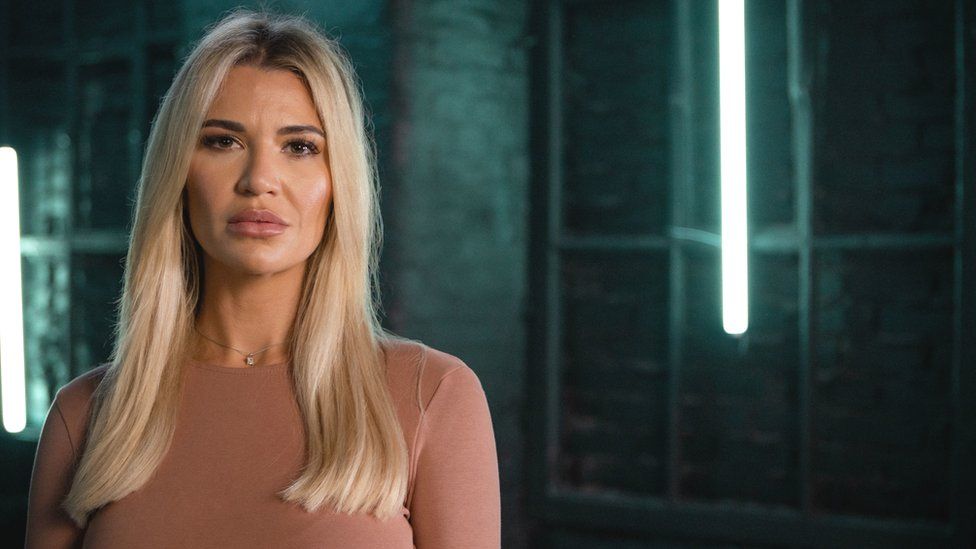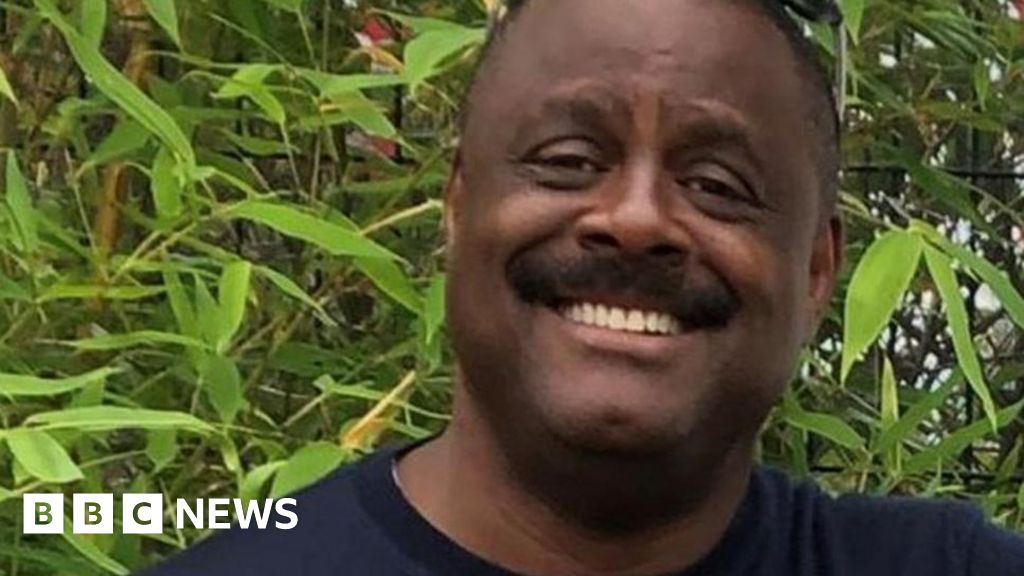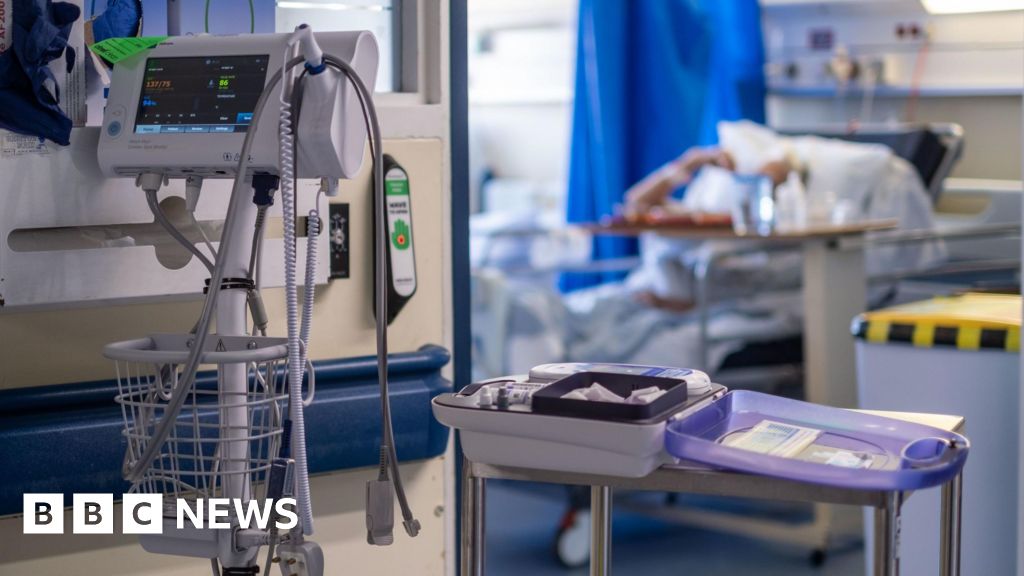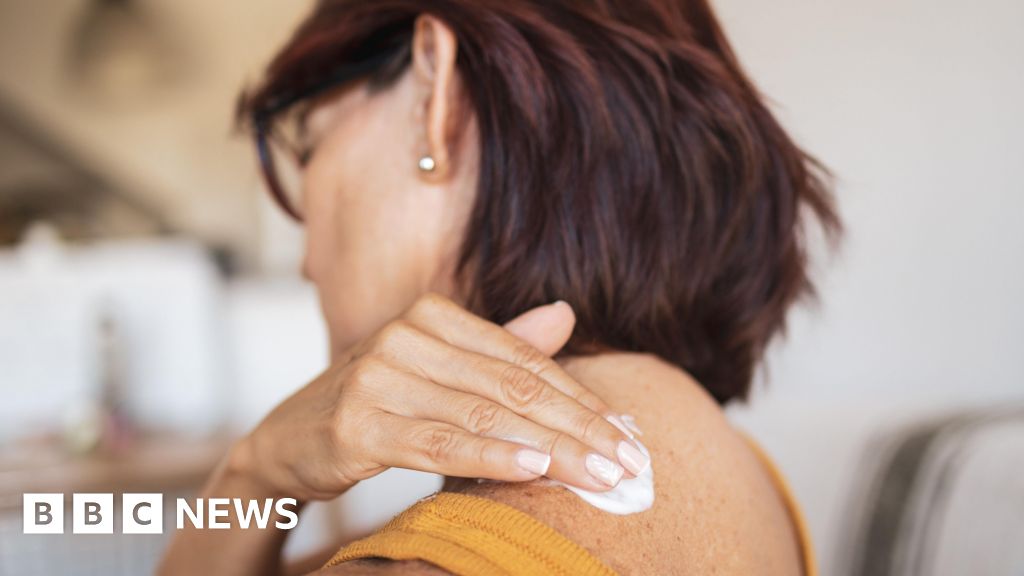ARTICLE AD BOX

Christine McGuinness was diagnosed as autistic aged 33
Model and TV personality Christine McGuinness speaks to the BBC about her adult autism diagnosis and her experience with sexual abuse.
Christine McGuinness got her autism diagnosis in 2021, at the age of 33.
For her, it explained a lot. As a teenager in Liverpool, she struggled to keep her focus at school, and got into trouble throwing chairs. She left at 14 without any qualifications. "I was a very confused, mixed-up little teenager not really knowing where I fitted in," she says.
From childhood, sensory issues meant she only ate beige foods. In her teens, this led to an eating disorder that caused her periods to stop.
And she's hypersensitive to sound and smell, which can make being in busy or noisy places difficult.
"I always just want to wear ear defenders," Christine - the former partner of TV presenter Paddy McGuinness - says about being triggered by certain noises in a room, like the ticking of a clock.
But one of the most difficult aspects of Christine's life came when she was younger. She was sexually abused from age nine to 11. She was then raped at 14.
The experience was so traumatic, she prayed every night that she wouldn't wake up the next morning. "Just because it was so awful," she says, "it was just awful."
A large number of autistic women and girls report experiences of sexual assault, says Dr Sarah Lister Brook, clinical director at the National Autistic Society. This can take the form of coercive, physical or sexual abuse. "This is a serious and deeply concerning issue," Dr Brook adds.
One 2022 study, an online survey that spoke to 225 people, suggests that nearly nine in 10 autistic women have been victims of "sexual violence". The researchers add: "Two thirds of the victims were very young when they were first assaulted."
'It's exhausting'
Autism is not defined as an illness or a disease, according to the NHS. Instead, an autistic person's brain works differently than other people.
And it's a spectrum, meaning every autistic person is different. Some common characteristics might include finding it hard to communicate and interact with others, getting anxious about unfamiliar situations or doing the same thing repeatedly.
Women and girls might be overlooked from getting an autism diagnosis because of the historical perception that autism mostly affects men and boys, or because they're adept at "masking" or camouflaging their autistic traits.
For Christine, "masking" can mean practising conversations before she has them or mimicking other people in a room, just so she can fit in. "It's exhausting," she says.
One reason why autistic women might be more at risk of sexual abuse is because they're often left out of friendship groups when they're growing up, says Rosie Creer the clinical director of Respond, an abuse support charity for autistic people and people with learning disabilities. This can, instead, make them more exposed to exploitative relationships.
There are many women in the UK, just like Christine, who have been dealing with undiagnosed autism for decades, and now Christine is looking for answers.
Watch on Wednesday 15 March, 21:00 GMT on BBC One and on BBC iPlayer.
Christine says she always found it difficult starting and maintaining friendships. "There've been times in my life where I desperately wanted a friend," she says.
Other risk factors for autistic women and girls can include communication issues between autistic people and people who aren't autistic, feeling the need to please others, and a lack of accessible education about sex and consent, adds Rosie Creer.
'This is kind of normal'
Like Christine, Sarah Douglas was diagnosed as autistic when she was an adult. And she says she was raped as a teenager.
This led to decades of panic attacks, eating disorders and even self-harm. "I was a mess, basically," she says.
Image source, Contributor image
Image caption,"My story is not unusual, that's the really appalling thing," Sarah says
Sarah, a postgraduate student in Bristol who has co-authored a book about the experiences of autistic people, says autistic women like her often "develop people-pleasing and masking behaviours" so they're not noticed as being different.
"I was kind of primed to be passive," she says.
Sarah also says she received no sex education when she was growing up - and she says her background didn't prepare her to notice "red flags" in potential abusers.
"My story is not unusual, that's the really appalling thing," she says. "For a lot of autistic people, this is kind of normal."
Sarah clarifies that it's not a person's autism that causes them to be assaulted or raped.
"It's always the choice of the perpetrator," she says. "It's not the autistic person's fault."
Christine adds that although the discussion about sexual assault among autistic women and girls is "frightening," it's a "very important one".
"For parents and carers to be more aware is a positive thing. I don't want it to scare or upset anybody, I just want people to be more aware that this is quite common, unfortunately."
Dr James Cusack, CEO of autism research and campaigning charity Autistica, agrees that awareness of this issue can lead to autistic women and girls, "feeling more empowered to have the confidence to advocate for themselves".
'Whole me now'
After leaving school, Christine was encouraged by her mum to enter beauty pageants, going on to win Miss Liverpool in 2007. She met future husband, Paddy McGuinness, when she was 19 - and remained in a relationship with him until their separation last year.
In the documentary, she says she felt more able to leave the relationship after getting her autism diagnosis, adding, "I stayed in a place where I was probably unhappy because it was safe and I don't like change."
Christine says she has experienced many positives since getting her autism diagnosis.
"It's helped me understand myself a lot more. I'm trying to not be so hard on myself."
Christine says the discussion about sexual assault among autistic women is "frightening" but "very important"
Christine says her autism diagnosis has helped her relate more to her three children, who are also autistic. For example, she can understand why her children are sometimes not very social, and she works with staff at their school to better accommodate their needs.
She says her children are now enjoying school and communicating well, describing them as, "happy, gorgeous little children".
Sarah says her autism diagnosis also helped her make positive changes to her life.
"I'm still me, but I'm a much more whole me now. And it's a really good place to be."
'A little more help'
More than 125,000 people - including women and girls - are currently waiting for an autism diagnosis, according to NHS figures.
Dr Brook says such long waits can be "traumatic" and, for many, it will mean struggling without support or eventually reaching "crisis point". And she argues there should be more tailored support, via training for the police, the Crown Prosecution Service (CPS) and counselling services, when autistic women and girls report sexual assault.
A Government spokesperson said it is "committed to reducing delays and improving access to support" and recognises "sexual offences can have a devastating impact on victims" including people with a disability. They add that they're investing to ensure patients are seen more quickly and to fund for victim support.
Meanwhile, a CPS spokesperson says prosecutors receive "specific training on supporting neurodiverse individuals" and are "focused on ensuring victims get the consistent and compassionate service they deserve".
While Christine says she's now pleased with her life as a mother, autism advocate and TV personality, she sometimes wonders if her life might have taken a different course if she'd been diagnosed earlier.
"For little Christine, I wish she'd had a little bit more help," she says.
Information and support about autism and sexual abuse can be found via the BBC Action Line.
Watch Christine McGuinness: Unmasking My Autism on Wednesday 15 March, 21:00 GMT on BBC One and on BBC iPlayer.
BBC images courtesy: Optomen / Duncan Stingemore / Imogen Mayow

 2 years ago
217
2 years ago
217








 English (US) ·
English (US) ·